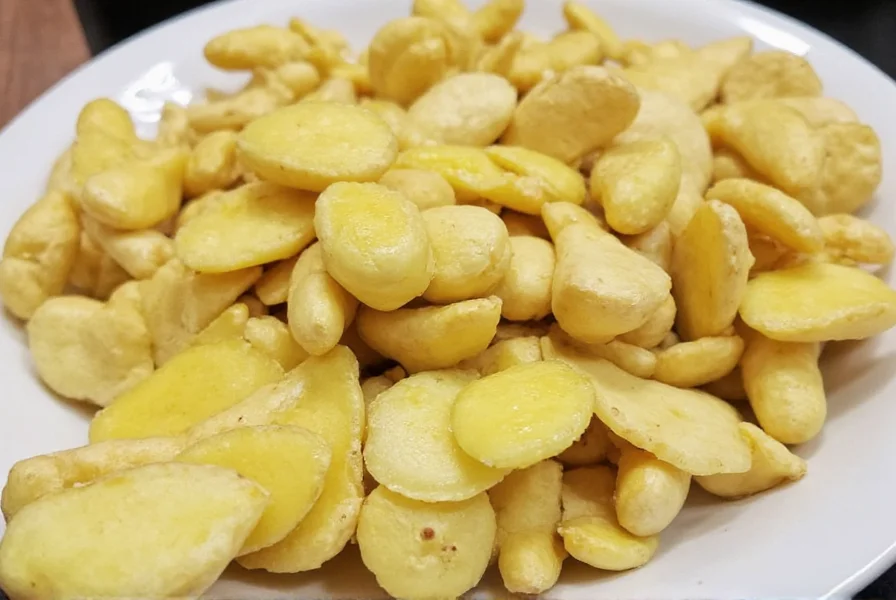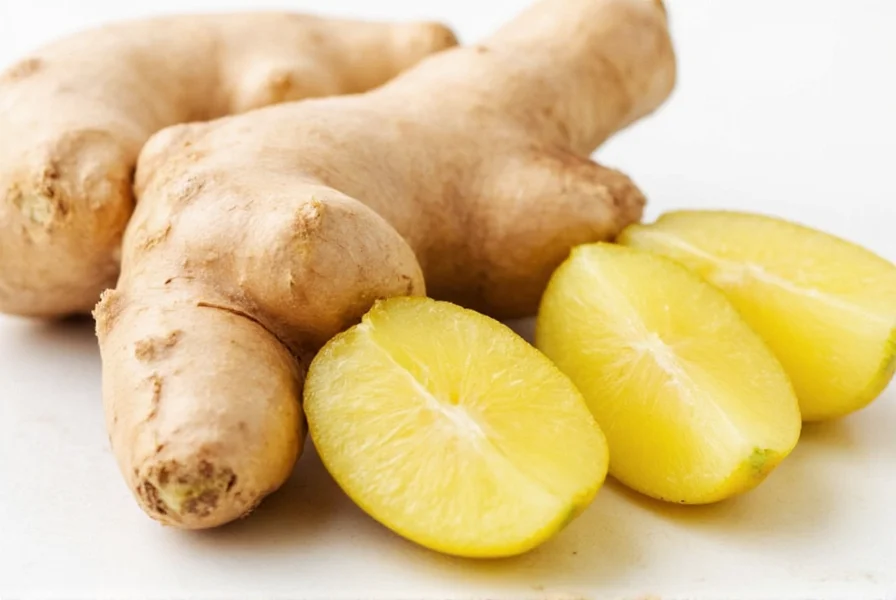Understanding ginger's shelf life helps reduce food waste and ensures you always have this versatile spice ready for cooking. Whether you're a home chef, meal prepper, or just bought more ginger than you can use immediately, knowing proper storage techniques makes all the difference in maintaining flavor and potency.
Factors That Determine Ginger's Shelf Life
Ginger's longevity depends on several key factors that affect its moisture content and exposure to elements that accelerate spoilage. The rhizome's natural oils and antimicrobial properties provide some protection, but environmental conditions play a crucial role in determining how long fresh ginger lasts in the refrigerator versus other storage methods.
Humidity levels significantly impact ginger storage. Too much moisture encourages mold growth, while too little causes the root to dry out and become fibrous. Temperature stability matters greatly—fluctuations speed up deterioration. The ginger's initial quality when purchased also affects its potential shelf life; firm, smooth-skinned roots with no soft spots will naturally last longer than compromised specimens.
Storage Methods Compared: Maximizing Ginger Freshness
| Storage Method | Shelf Life | Best Practices |
|---|---|---|
| Room Temperature (counter) | 5-7 days | Store in cool, dark place with good air circulation; check daily for mold |
| Refrigerator (whole) | 3-4 weeks | Wrap in paper towel, place in perforated plastic bag in crisper drawer |
| Refrigerator (peeled) | 1-2 weeks | Submerge in sherry, vodka, or rice vinegar in airtight container |
| Freezer (whole) | 6+ months | Freeze unpeeled; grate frozen as needed without thawing |
| Freezer (sliced) | 6 months | Place slices on parchment paper, freeze, then transfer to freezer bag |
Refrigeration Techniques for Extended Freshness
Proper refrigeration dramatically extends how long ginger lasts in the fridge. The paper towel method works effectively because it absorbs excess moisture while allowing the ginger to breathe. Simply wrap your ginger root in a dry paper towel, place it in a partially open plastic bag or container with ventilation holes, and store it in your refrigerator's crisper drawer.
For peeled ginger, submerging it in alcohol preserves both flavor and texture. Vodka, sherry, or rice vinegar create an antimicrobial environment that prevents spoilage while keeping the ginger pliable. This method answers the common question about how long does peeled ginger last in the fridge—typically 4-6 weeks when properly submerged.

Freezing Ginger: The Long-Term Solution
Freezing represents the most effective method for preserving ginger long-term. You don't need to peel ginger before freezing—it actually protects the flesh from freezer burn. Simply place unpeeled ginger in a freezer bag, removing as much air as possible. When you need ginger for cooking, grate the frozen root directly into your dish; the skin will separate from the usable flesh.
This technique addresses the practical concern of how long can you keep ginger in the freezer while maintaining quality. Properly stored, frozen ginger retains its flavor compounds and enzymatic properties for 6 months to a year. While it may technically remain safe indefinitely, flavor degradation becomes noticeable after 12 months.
Recognizing Spoiled Ginger: Safety First
Knowing when ginger has gone bad prevents foodborne illness and ensures optimal flavor in your dishes. Discard ginger showing any of these signs:
- Mold growth (fuzzy white, green, or black spots)
- Extensive softness or mushiness when pressed
- Darkened flesh, especially grayish discoloration
- Strong, unpleasant odor (fresh ginger should have a clean, spicy aroma)
- Wrinkled, shrunken appearance with dry, brittle texture
Minor surface wrinkles don't necessarily mean the ginger is bad—simply peel away the dry outer layer. However, if the entire root feels soft or shows internal discoloration when cut, it's time to discard it. This information directly addresses the safety concern behind how do you know when ginger goes bad.
Practical Tips to Extend Ginger's Freshness
Implement these professional storage techniques to maximize your ginger's shelf life:
- Buy wisely: Select firm roots with smooth skin and minimal branching for longest storage potential
- Avoid pre-peeling: Only peel ginger as needed—the skin provides natural protection
- Store whole: Keep ginger uncut until ready to use; cut surfaces deteriorate faster
- Moisture management: Change paper towels weekly when refrigerating to prevent excess moisture buildup
- Portion control: Freeze ginger in smaller quantities you'll use at one time
Understanding how long fresh ginger lasts in fridge conditions helps you plan meals and reduce waste. By implementing these storage methods, you'll always have this valuable spice ready when inspiration strikes in the kitchen.
Frequently Asked Questions
Can you use ginger after it turns yellow inside?
Yellowing inside typically indicates oxidation rather than spoilage. If the ginger remains firm with no mold or unpleasant odor, it's generally safe to use. Simply cut away any significantly discolored sections before use.
Does dried ginger last longer than fresh ginger?
Yes, properly stored dried ginger powder maintains quality for 2-3 years in a cool, dark place. Whole dried ginger slices last 1-2 years. While dried ginger has a different flavor profile than fresh, it offers much longer shelf life for spice cabinet storage.
How long does ginger last in water in the refrigerator?
Ginger stored in water in the refrigerator typically lasts 1-2 weeks. Change the water every 2-3 days to prevent bacterial growth. While this method keeps ginger hydrated, it doesn't preserve it as effectively as the paper towel or alcohol methods.
Can you freeze ginger with the skin on?
Yes, freezing ginger with the skin on is actually recommended. The skin protects the flesh from freezer burn and makes the ginger easier to handle when frozen. You can grate frozen ginger directly through the skin, which separates naturally during grating.
Why does my ginger become slimy in the refrigerator?
Sliminess indicates bacterial growth and moisture buildup. This happens when ginger is stored in a sealed container without proper ventilation or when the paper towel method isn't maintained. Discard slimy ginger as it's no longer safe to consume.











 浙公网安备
33010002000092号
浙公网安备
33010002000092号 浙B2-20120091-4
浙B2-20120091-4